人在国内还申失业金!纽约多名华裔针灸师,涉诈骗被捕!最高75年监禁
来源: 华人生活网
10/06/2021
纽约两名华裔针灸师、一名华裔出纳员和六名物理治疗师,因在疫情期间参与一项2,000万美元的医疗欺诈计划,于28日被捕并面临刑事指控。
其中,刘姓针灸师还被指控通过疫情失业金“非法牟利”,实际她在申报“失业”期间一直在经营诊所;她为家庭成员申报在美“找不到工作”而每周领取失业救济期间,该家庭成员有5个月实际身处中国。
这些被告分别是:
67岁的华裔针灸师刘君怡(Junyi Liu,音译)
布碌崙61岁的华裔针灸师王洪星(Hongxing Wang,音译)
皇后区20岁的华裔出纳陈子浩(Zihao Chen,音译)
六名物理治疗师分别是:
花园公园(Floral Park)的Gleen Anciro
Mineola的Noemi Algodon
史坦顿岛的Mohamed Elmandouh
West Hempstead的Gerard Estrella
Merrick的Ramon Garcia III
East Meadow的Henler Datu Tahil
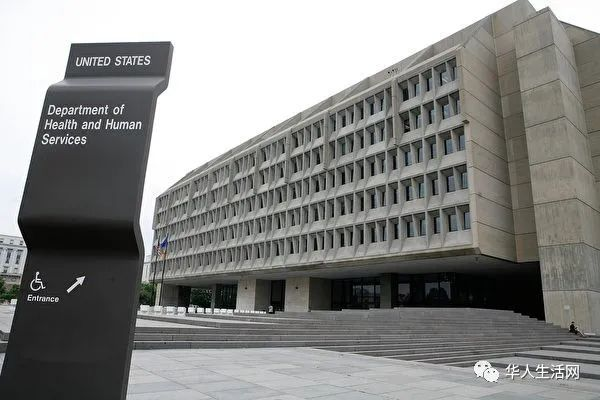
纽约南区检察官施特劳斯(Audrey Strauss)表示,9人涉嫌在曼哈顿、布碌崙和皇后区的诊所实施医疗保健欺诈计划。
该团伙提出虚假和欺诈性的保险索赔,制作虚假的医疗文件,并用现金和昂贵的葡萄酒向一些由Medicare(红蓝卡)和其它保险公司投保的患者支付回扣。
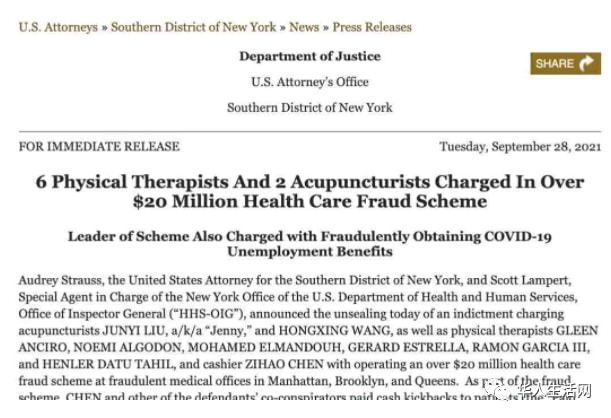
起诉书称,持牌针灸师刘君怡聘请了一名出纳员,该出纳员向患者支付了数万美元。
据称,付费患者接受了不必要的医疗治疗,或到办公室签署文件而没有接受治疗就离开,或在办公室外签署了带给他们的文件。

该团伙伪造患者病历,声称提供了物理治疗和针灸服务,实际上,患者可能只得到一次按摩,不符合报销条件;在某些情况下,根本没有任何服务。
政府对9人的指控是:合谋实施医疗欺诈、串谋违反《反回扣条例》、共谋洗钱,这三个罪名的最高刑期分别是20年、5年和20年监禁。
刘君怡还另外被控电汇欺诈和盗窃政府资金,最高刑期分别是20年和10年。若罪名成立,刘将面临75年监禁!
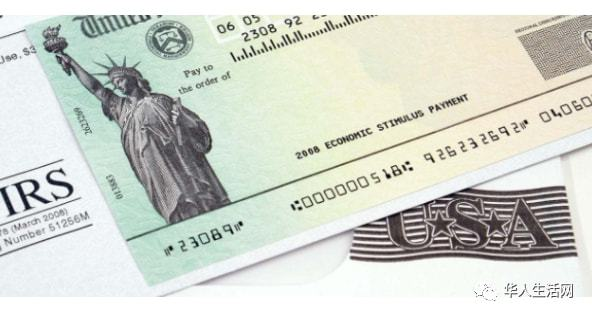
2020年4月-9月,刘君怡还为自己及一名家庭成员向纽约州劳工厅(New York Department of Labor, DOL)申请了至少4万美元新冠疫情失业救济,实际她在申报“失业”期间一直在经营诊所,她的家庭成员受僱于她的诊所。
2020年8月-2021年8月,刘君怡每週为领取失业救济金的家庭成员向DOL报告“还没找到工作”,此家庭成员有5个月实际身处中国。
“这里所说的大规模保险欺诈给公众和保险公司带来了隐藏但非常真实的成本。”施特劳斯检察官说。
美国卫生与公众服务部监察长办公室(HHS-OIG)纽约办事处的特工主管兰伯特(Scott Lampert)说,“这些指控描述了一个贪婪的计划,破坏了我们的医疗保健系统及其服务的人民。”
他特别指出,健保提供者应该使(红蓝卡)受益人“成为他们护理的合作者,而不是欺诈的共谋者。”
1 美元=6.47人民币

Fang (Winnie) Schreck | United Real Estate
Tel: 551-580-4856 | Email: F.WINNIE.S@GMAIL.COM
Events…
预告一周北美法律公益讲座安排
10/04/2021
时间:周二到周五 晚间
5:30-7:00(西部时间)8:30-9:30(东部 时间)
重播:第二天
上午9:00(西部时间)
中午:12:00(东部时间)
周二: 蒋律师讲遗嘱和需要注意的问题
周三: 数据泄露和个人身份保护&事业机会说明会
周四:北美常见法律问题案例分享(主讲:Joanna,Irene)
周五:律师讲人身伤害如何索赔
Zoom 6045004698
密码:请扫码进群索取
另外:周三6:30(西部时间)美国专场(Michael Wang 主讲)
Zoom 95190929213
密码请扫码进群索取。

Department of Justice
U.S. Attorney’s OfficeSouthern District of New York
FOR IMMEDIATE RELEASE
Tuesday, September 28, 2021
6 Physical Therapists And 2 Acupuncturists Charged In Over $20 Million Health Care Fraud Scheme
Leader of Scheme Also Charged with Fraudulently Obtaining COVID-19 Unemployment Benefits
Audrey Strauss, the United States Attorney for the Southern District of New York, and Scott Lampert, Special Agent in Charge of the New York Office of the U.S. Department of Health and Human Services, Office of Inspector General (“HHS-OIG”), announced the unsealing today of an indictment charging acupuncturists JUNYI LIU, a/k/a “Jenny,” and HONGXING WANG, as well as physical therapists GLEEN ANCIRO, NOEMI ALGODON, MOHAMED ELMANDOUH, GERARD ESTRELLA, RAMON GARCIA III, and HENLER DATU TAHIL, and cashier ZIHAO CHEN with operating an over $20 million health care fraud scheme at fraudulent medical offices in Manhattan, Brooklyn, and Queens. As part of the fraud scheme, CHEN and other of the defendants’ co-conspirators paid cash kickbacks to patients (the “Paid Patients”) who were insured by Medicare and/or other insurance providers (collectively, the “Insurance Providers”), and the defendants and their co-conspirators then billed Medicare and the insurance providers for physical therapy and acupuncture services related to the Paid Patients that were unnecessary or never performed. LIU was additionally charged with unlawfully enriching herself and a family member through a COVID-19 unemployment benefit scheme.
The defendants were arrested earlier today and will be presented this afternoon before U.S. Magistrate Judge Gabriel W. Gorenstein. The case is assigned to Chief U.S. District Judge Laura Taylor Swain.
U.S. Attorney Audrey Strauss said: “As alleged, the defendants perpetrated a multimillion-dollar health care fraud scheme in which they billed Medicare and other insurers for physical therapy and acupuncture services that were either not rendered in the manner purported or not rendered at all. Large-scale insurance frauds of the type alleged here impose hidden but very real costs on the public as well as insurers. Thanks to our partners in this case, the defendants are in custody and facing serious federal charges.”
HHS Special Agent in Charge Scott Lampert said: “These allegations describe a greed-fueled scheme that undermined our health care system and the people it serves. Health care providers participating in the Medicare program are trusted to furnish medically necessary services and to make beneficiaries collaborators in their care, not conspirators in fraud. HHS-OIG and our law enforcement partners proudly work to protect federal health care funds by identifying and quelling fraudulent billing of providers.”
According to the allegations contained in the Indictment[1] and statements made during court proceedings:
Between 2018 and 2021, LIU, a licensed acupuncturist, operated medical offices (the “Offices”) from which LIU and her partners fraudulently billed the Insurance Providers for physical therapy and acupuncture services that were not rendered in the manner represented or not rendered at all. During the scheme, LIU partnered with other licensed medical professionals, including ANCIRO, ALGODON, ELMANDOUH, ESTRELLA, GARCIA, and TAHIL, all of whom were licensed physical therapists, and WANG, who was a licensed acupuncturist (collectively, the “Partners”). The Partners’ roles in the scheme typically included: (i) allowing the Offices to use their enrollments with the Insurance Providers to submit to the Insurance Providers materially false and fraudulent claims for reimbursement for physical therapy and acupuncture services that were not rendered in the manner represented or were not rendered at all; (ii) creating materially false medical documentation, which stated that certain physical therapy and acupuncture services had been rendered, when such services in fact were not rendered in the manner represented or were not rendered at all; and (iii) contributing financing for the Offices, including for the payment of cash kickbacks to the Paid Patients to induce those patients to provide their insurance information and receive medically unnecessary and/or non-existent services at the Offices. LIU and certain of the Partners also agreed to give kickbacks, including cash and expensive wine, to employees of Insurance Providers to enable the scheme to continue.
In furtherance of the scheme, LIU employed receptionists, cashiers, marketers, financial and billing personnel, acupuncturists, massagists, and other personnel. The cashiers included CHEN, who on numerous occasions distributed tens of thousands of dollars in cash kickbacks to the Paid Patients. In some instances, these Paid Patients visited the Offices, signed in, and received unnecessary physical therapy and acupuncture services. In other instances, the Paid Patients visited the Offices, signed a sign-in sheet and other documents, and then left without receiving any services at all. In yet other instances, the Paid Patients did not visit the Offices at all and instead signed sign-in sheets and other documents brought to them elsewhere. Regardless of whether the Paid Patients received any services or even visited the Offices at all, the Partners used the Paid Patients’ insurance information to fraudulently bill the Insurance Providers for unnecessary and/or never rendered services.
While LIU and her Partners were defrauding the Insurance Providers of millions of dollars, from April 2020 through September 2021, LIU also engaged in a scheme to obtain COVID-19 unemployment benefits for herself and a family member (the “Family Member”) by fraudulently submitting and causing to be submitted to the New York Department of Labor materially false online applications and certifications for COVID-19 benefits. Among other things, the applications and/or certifications represented that LIU was unemployed when, in fact, she continued to operate the Offices for all or nearly all of this period, and that LIU’s Family Member was unable to work because of COVID-19 during a five-month period when the Family Member was in China.
* * *
JUNYI LIU, 67, of Great Neck, New York, GLEEN ANCIRO, 50, of Floral Park, New York, NOEMI ALGODON, 49, of Mineola, New York, MOHAMED ELMANDOUH, 48, of Staten Island, New York, GERARD ESTRELLA, 39, of West Hempstead, New York, RAMON GARCIA III, 39, of Merrick, New York, HENLER DATU TAHIL, 38, of East Meadow, New York, HONGXING WANG, 61, of Brooklyn, and ZIHAO CHEN, 20, of Queens, are each charged with: (1) conspiring to commit health care fraud, which carries a maximum sentence of 20 years in prison; (2) conspiring to violate the Anti-Kickback Statute, which has a maximum penalty of five years in prison; and (3) conspiring to commit money laundering, which carries a maximum sentence of 20 years in prison. LIU is also charged with wire fraud, which has a maximum penalty of 20 years in prison, and theft of Government funds, which has a maximum penalty of 10 years in prison.
The statutory maximum sentences are prescribed by Congress and provided here for informational purposes only, as any sentencing of the defendants would be determined by the judge.
Ms. Strauss praised the outstanding investigative work of HHS-OIG’s New York Office and the New York Field Office of the Internal Revenue Service, Criminal Investigation. Ms. Strauss also thanked the New York State Attorney General’s Medicaid Fraud Control Unit and the U.S. Department of Labor, Office of Inspector General, for their assistance.
The prosecution of this case is being handled by the Office’s Complex Frauds and Cybercrime Unit. Assistant U.S. Attorney Timothy V. Capozzi is in charge of the prosecution.
The charges contained in the Indictment are merely accusations, and the defendants are presumed innocent unless and until proven guilty.
—
[1] As the introductory phrase signifies, the entirety of the text of the Indictment and the description of the Indictment set forth in this release constitute only allegations, and every fact described should be treated as an allegation.
IRS:海外银行资产和金融账户申报10月15日截止
来源: 华人生活网
10/06/2021
很多华人即便入了美国国籍,但是在中国依旧有银行存款账户,也有人还有一些海外的生意。
大家要注意了,以下情况是要提交《国外银行和金融帐户报告》的。
在一个或多个帐户中有经济利益、有签字权或有其他权力,这些帐户包括在美国境外的银行帐户、经纪帐户、共同基金或其他金融帐户;日历年内任何时候所有外国金融帐户的总价值超过 1万 美元。
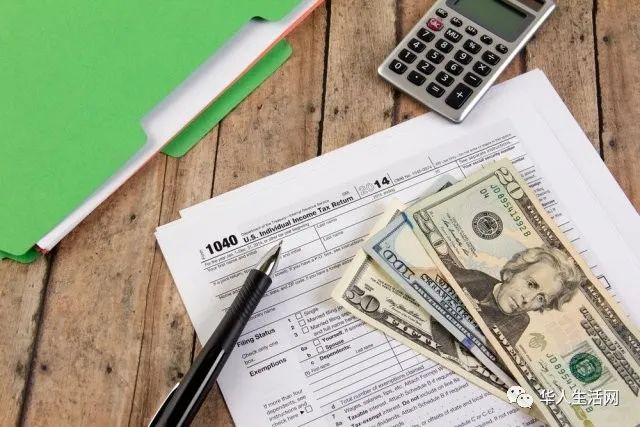
国税局(IRS)10月1日提醒美国公民、税法定义居民和任何境内法人实体,提交《国外银行和金融帐户报告》(FBAR) 的延期截止日为今年10 月15日。正常来说申报人若错过今年早些时候的 4 月 15 日年度截止日期,会被自动延期至 10 月 15 日提交FBAR,不需要申请延期。
国税局表示,申报人若受自然灾害影响,FBAR到期日可以要求进一步延长。重要的是,申报者须查看相关的FBAR 救援通知以获取完整信息。
目前由于1万美元这个界限的存在,国税局鼓励美国税务居民或拥有外国帐户的实体(即使是拥有相对较小的帐户),核查他们是否应就此报告申报。
美国税务居民指的是美国公民、居民或任何境内法人实体,例如合伙企业、公司、有限责任公司、遗产或信託。
国税局表示,申报人不应将FBAR与他们的联邦所得税申报表一起提交。
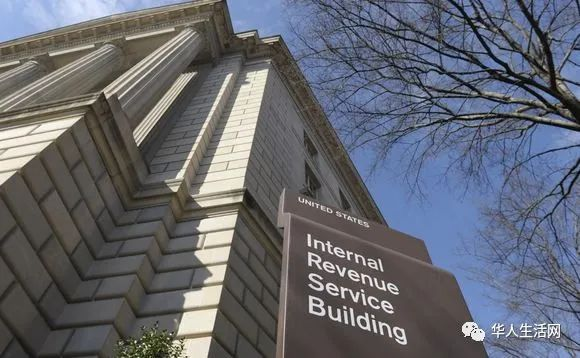
2020年FBAR必须以电子方式提交给金融罪行加强执法网络 (FinCEN),并且只能通过BSA电子申报系统网站递交。无法通过电子方式提交FBAR的纳税人必须致电金融罪行加强执法网络(FinCEN),美国境内拨打800-949-2732,美国境外拨打 703-905-3975。
凡未及时提交FBAR者,可能受到严重的民事和刑事处罚,可能导致罚款或监禁。
但若国税局确定延迟提交的原因合理,则不会惩罚那些延迟提交的FBAR 、报告外国帐户的人。
也有民众此前询问为什么经常看到5万美元的门槛,为什么此文中又说1万美元。这其实就是肥爸与肥咖的区别!
本月截止的是FBAR,也就是华人常说的肥爸。
“肥爸”﹙FBAR, Report of Foreign Bank and Financial Accounts ﹚是奥巴马政府于2009年5月发布税制改革“绿皮书”(The Green Book)中规定的,目的为严查美国境外所得税申报,以确定纳税人的境外所得完整申报,包含所有境外金融机构之账户,原先要求于2009年9月23日前需补申报海外账户。
后来,为了打击海外逃税,IRS又制定了“肥咖”(FATCA, Foreign Account Tax Compliance Act﹚。要求全世界各国银行交出美国税务居民金额美金5万以上的账户资料,企图在未来十年内追回估计超过85亿美元的海外逃税。两者在申报上也有许多区别:
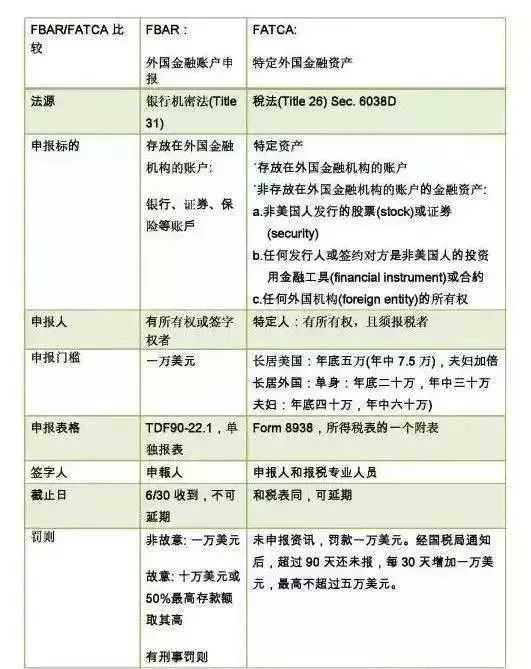
1 美元=6.47人民币
IRS: Oct. 15 FBAR extension deadline nears for foreign bank and financial account holders
IR-2021-196, October 1, 2021
WASHINGTON — The Internal Revenue Service reminds U.S. citizens, resident aliens and any domestic legal entity that the extension deadline to file their annual Report of Foreign Bank and Financial Accounts (FBAR) is Oct. 15, 2021.
Filers missing the April 15 annual due date earlier this year received an automatic extension until Oct. 15, 2021, to file the FBAR. They did not need to request the extension.
Filers affected by a natural disaster may have their FBAR due date further extended. It’s important filers review relevant FBAR Relief Notices for complete information.
Who needs to file?
The Bank Secrecy Act requires U.S. persons to file an FBAR if they have:
- Financial interest in, signature authority or other authority over one or more accounts, such as a bank account, brokerage account, mutual fund or other financial account located outside the United States, and
- The aggregate value of all foreign financial accounts exceeds $10,000 at any time during the calendar year.
Because of this threshold, the IRS encourages U.S. persons or entities with foreign accounts, even relatively small ones, to check if this filing requirement applies to them. A U.S. person is a citizen or resident of the United States or any domestic legal entity such as a partnership, corporation, limited liability company, estate or trust.
How to file
Filers do not file the FBAR with their federal income tax return. The 2020 FBAR must be filed electronically with the Financial Crimes Enforcement Network (FinCEN) and is only available through the BSA E-Filing System website. Those who are unable to e-file their FBAR must call FinCEN at 800-949-2732, or from outside the U.S. at 703-905-3975.
Avoid penalties
Those who don’t file an FBAR when required may be subject to significant civil and criminal penalties that can result in a fine and/or prison. The IRS will not penalize those who properly reported a foreign account on a late-filed FBAR if the IRS determines there was reasonable cause for late filing.
FBAR resources on IRS.gov:
- How to report foreign bank and financial accounts
- International Taxpayers
- IRS FBAR Reference Guide PDF
- FAQs About International Individual Tax Matters
- FinCEN’s website Reporting Maximum Account Value
To help avoid delays with tax refunds, taxpayers living abroad should visit Helpful Tips for Effectively Receiving a Tax Refund for Taxpayers Living Abroad on IRS.gov.
IRS: Report of Foreign Bank and Financial Accounts (FBAR)
Every year, under the law known as the Bank Secrecy Act, you must report certain foreign financial accounts, such as bank accounts, brokerage accounts and mutual funds, to the Treasury Department and keep certain records of those accounts. You report the accounts by filing a Report of Foreign Bank and Financial Accounts (FBAR) on FinCEN Form 114.
Who Must File
A United States person, including a citizen, resident, corporation, partnership, limited liability company, trust and estate, must file an FBAR to report:
- a financial interest in or signature or other authority over at least one financial account located outside the United States if
- the aggregate value of those foreign financial accounts exceeded $10,000 at any time during the calendar year reported.
Generally, an account at a financial institution located outside the United States is a foreign financial account. Whether the account produced taxable income has no effect on whether the account is a “foreign financial account” for FBAR purposes.
But, you don’t need to report foreign financial accounts that are:
- Correspondent/Nostro accounts,
- Owned by a governmental entity,
- Owned by an international financial institution,
- Maintained on a United States military banking facility,
- Held in an individual retirement account (IRA) you own or are beneficiary of,
- Held in a retirement plan of which you’re a participant or beneficiary, or
- Part of a trust of which you’re a beneficiary, if a U.S. person (trust, trustee of the trust or agent of the trust) files an FBAR reporting these accounts.
You don’t need to file an FBAR for the calendar year if:
- All your foreign financial accounts are reported on a consolidated FBAR.
- All your foreign financial accounts are jointly-owned with your spouse and:
- You completed and signed FinCEN Form 114a authorizing your spouse to file on your behalf, and your spouse reports the jointly-owned accounts on a timely-filed, signed FBAR.
Note: Income tax filing status, such as married-filing-jointly and married-filing-separately has no effect on your qualification for this exception.
The FBAR Reference Guide PDF) and FBAR instructions PDF provide more detailed information. The FBAR webinar explains how to calculate the aggregate value of your accounts to figure if you need to file an FBAR.
When to File
The FBAR is an annual report, due April 15 following the calendar year reported.
You’re allowed an automatic extension to October 15 if you fail to meet the FBAR annual due date of April 15. You don’t need to request an extension to file the FBAR.
If you are affected by a natural disaster, the government may further extend your FBAR due date. It’s important that you review relevant FBAR Relief Notices for complete information.
For certain employees or officers with signature or other authority over, but no financial interest in certain foreign financial accounts, the 2018 FBAR due date is deferred to April 15, 2020. See Notice 2018-1 PDF.
How to File
You must file the FBAR electronically through the Financial Crimes Enforcement Network’s BSA E-Filing System. You don’t file the FBAR with your federal tax return.
If you want to paper-file your FBAR, you must call FinCEN’s Regulatory Helpline to request an exemption from e-filing. See Contact Us below to reach this Helpline. If FinCEN approves your request, FinCEN will send you the paper FBAR form to complete and mail to the IRS at the address in the form’s instructions. IRS will not accept paper-filings on TD F 90-22.1 (obsolete) or a printed FinCEN Form 114 (for e-filing only).
If you want someone to file your FBAR on your behalf, use FinCEN Report 114a PDF, Record of Authorization to Electronically File FBARs, to authorize that person to do so. You don’t submit FinCEN Report 114a when filing the FBAR; just keep it for your records and make it available to FinCEN or IRS upon request.
Keeping Records
You must keep records for each account you must report on an FBAR that establish:
- Name on the account,
- Account number,
- Name and address of the foreign bank,
- Type of account, and
- Maximum value during the year.
The law doesn’t specify the type of document to keep with this information; it can be bank statements or a copy of a filed FBAR, for example, if they have all the information.
You must keep these records for five years from the due date of the FBAR.
Exception: An officer or employee who files an FBAR to report signature authority over an employer’s foreign financial account doesn’t need to personally keep records on these accounts. The employer must keep the records for these accounts.
Penalties
You may be subject to civil monetary penalties and/or criminal penalties for FBAR reporting and/or recordkeeping violations. Assertion of penalties depends on facts and circumstances. Civil penalty maximums must be adjusted annually for inflation. Current maximums are as follows:
| U.S. Code citation | Civil Monetary Penalty Description | Current Maximum |
|---|---|---|
| 31 U.S.C. 5321(a)(5)(B)(i) | Foreign Financial Agency Transaction – Non-Willful Violation of Transaction | $12,921 |
| 31 U.S.C. 5321(a)(5)(C) | Foreign Financial Agency Transaction – Willful Violation of Transaction | Greater of $129,210, or 50% of the amount per 31 U.S.C.5321(a)(5)(D) |
| 31 U.S.C. 5321(a)(6)(A) | Negligent Violation by Financial Institution or Non-Financial Trade or Business | $1,118 |
| 31 U.S.C. 5321(a)(6)(B) | Pattern of Negligent Activity by Financial Institution or Non-Financial Trade or Business | $86,976 |
Criminal penalty maximums are provided in the FBAR Resources below.
Filing Delinquent FBARs
Filing an FBAR late or not at all is a violation and may subject you to penalties (see Penalties above). If you have not been contacted by IRS about a late FBAR and are not under civil or criminal investigation by IRS, you may file late FBARs and, to keep potential penalties to a minimum, should do so as soon as possible. To keep potential penalties to a minimum, you should file late FBARs as soon as possible.
Follow these instructions to explain your reason for filing late. If you’re participating in an optional program to resolve FBAR noncompliance, such as Delinquent FBAR Submission Procedures or Streamlined Filing Compliance Procedures , follow the instructions for those programs.

Representation for FBAR Issues
You can file Form 2848, Power of Attorney and Declaration of Representative, if the IRS begins an FBAR examination as a result of an income tax examination (Title 26). Complete Line 3, acts authorized, as follows:
- Under Description of Matter – Matters relating to Report of Foreign Bank and Financial Accounts or “FBAR Examination”
- Under Tax Form Number – FinCEN Form 114
- Under Year(s) or Period(s) – applicable tax year(s)
(Note: Disregard previous guidance to complete Line 5a, additional acts authorized.)
Don’t use Form 2848 if a related income tax examination doesn’t apply. You may use a general power of attorney form executed under applicable state law.

FBAR Resources
- FBAR Reference Guide PDF
- Webinar: Reporting of Foreign Bank and Financial Accounts on the Electronic FBAR
- FBAR fact sheet
Note: Civil penalty maximums in these materials are no longer current, as these amounts are adjusted annually for inflation. See Penalties above for more information.
Contact Us
Can’t find the answer to your question in online information? Contact us.
| Contact | Business Hours | Help Offered | |
|---|---|---|---|
| IRS FBAR Hotline | 866-270-0733; or if calling from outside the United States, 313-234-6146 | Monday – Friday, 8 a.m. to 4:30 p.m. EST | General questions: FBAR filing requirements Filing methods |
| FinCEN’s BSA E-Filing Help Desk | See FinCEN’s website for contact information | Monday – Friday, 8 a.m. to 6 p.m. EST | Technical questions about BSA’s E-Filing System |
| FinCEN’s Regulatory Helpline | See FinCEN’s website for contact information | Leave a message for a return call | E-filing exemptions to allow FBAR paper-filingQuestions about BSA regulations |

IRS: Expanded tax benefits help individuals and businesses give to charity during 2021; deductions up to $600 available for cash donations by non-itemizers
IR-2021-190, September 17, 2021
WASHINGTON — The Internal Revenue Service today explained how expanded tax benefits can help both individuals and businesses give to charity before the end of this year.
The Taxpayer Certainty and Disaster Tax Relief Act of 2020, enacted last December, provides several provisions to help individuals and businesses who give to charity. The new law generally extends through the end of 2021 four temporary tax changes originally enacted by the Coronavirus Aid, Relief, and Economic Security (CARES) Act. Here is a rundown of these changes.
Deduction for individuals who don’t itemize; cash donations up to $600 qualify
Ordinarily, individuals who elect to take the standard deduction cannot claim a deduction for their charitable contributions. The law now permits these individuals to claim a limited deduction on their 2021 federal income tax returns for cash contributions made to certain qualifying charitable organizations. Nearly nine in 10 taxpayers now take the standard deduction and could potentially qualify to claim a limited deduction for cash contributions.
These individuals, including married individuals filing separate returns, can claim a deduction of up to $300 for cash contributions made to qualifying charities during 2021. The maximum deduction is increased to $600 for married individuals filing joint returns.
Cash contributions to most charitable organizations qualify. However, cash contributions made either to supporting organizations or to establish or maintain a donor advised fund do not qualify. Cash contributions carried forward from prior years do not qualify, nor do cash contributions to most private foundations and most cash contributions to charitable remainder trusts. In general, a donor-advised fund is a fund or account maintained by a charity in which a donor can, because of being a donor, advise the fund on how to distribute or invest amounts contributed by the donor and held in the fund. A supporting organization is a charity that carries out its exempt purposes by supporting other exempt organizations, usually other public charities. See Publication 526, Charitable Contributions for more information on the types of organizations that qualify.
Cash contributions include those made by check, credit card or debit card as well as amounts incurred by an individual for unreimbursed out-of-pocket expenses in connection with the individual’s volunteer services to a qualifying charitable organization. Cash contributions don’t include the value of volunteer services, securities, household items or other property.
100% limit on eligible cash contributions made by itemizers in 2021
Subject to certain limits, individuals who itemize may generally claim a deduction for charitable contributions made to qualifying charitable organizations. These limits typically range from 20% to 60% of adjusted gross income (AGI) and vary by the type of contribution and type of charitable organization. For example, a cash contribution made by an individual to a qualifying public charity is generally limited to 60% of the individual’s AGI. Excess contributions may be carried forward for up to five tax years.
The law now permits electing individuals to apply an increased limit (“Increased Individual Limit”), up to 100% of their AGI, for qualified contributions made during calendar-year 2021. Qualified contributions are contributions made in cash to qualifying charitable organizations.
As with the new limited deduction for nonitemizers, cash contributions to most charitable organizations qualify, but, cash contributions made either to supporting organizations or to establish or maintain a donor advised fund, do not. Nor do cash contributions to private foundations and most cash contributions to charitable remainder trusts.
Unless an individual makes the election for any given qualified cash contribution, the usual percentage limit applies. Keep in mind that an individual’s other allowed charitable contribution deductions reduce the maximum amount allowed under this election. Eligible individuals must make their elections with their 2021 Form 1040 or Form 1040-SR.
Corporate limit increased to 25% of taxable income
The law now permits C corporations to apply an increased limit (Increased Corporate Limit) of 25% of taxable income for charitable contributions of cash they make to eligible charities during calendar-year 2021. Normally, the maximum allowable deduction is limited to 10% of a corporation’s taxable income.
Again, the Increased Corporate Limit does not automatically apply. C corporations must elect the Increased Corporate Limit on a contribution-by-contribution basis.
Increased limits on amounts deductible by businesses for certain donated food inventory
Businesses donating food inventory that are eligible for the existing enhanced deduction (for contributions for the care of the ill, needy and infants) may qualify for increased deduction limits. For contributions made in 2021, the limit for these contribution deductions is increased from 15% to 25%. For C corporations, the 25% limit is based on their taxable income. For other businesses, including sole proprietorships, partnerships, and S corporations, the limit is based on their aggregate net income for the year from all trades or businesses from which the contributions are made. A special method for computing the enhanced deduction continues to apply, as do food quality standards and other requirements.
Keep good records
The IRS reminds individuals and businesses that special recordkeeping rules apply to any taxpayer claiming a charitable contribution deduction. Usually, this includes obtaining an acknowledgment letter from the charity before filing a return and retaining a cancelled check or credit card receipt for contributions of cash. For donations of property, additional recordkeeping rules apply, and may include filing a Form 8283 and obtaining a qualified appraisal in some instances.
For details on how to apply the percentage limits and a description of the recordkeeping rules for substantiating gifts to charity, see Publication 526, available on IRS.gov.
The IRS also encourages employers to help get the word out about the advance payments of the Child Tax Credit because they have direct access to many employees and individuals who receive this credit.
For more information about other Coronavirus-related tax relief, visit IRS.gov/coronavirus.





